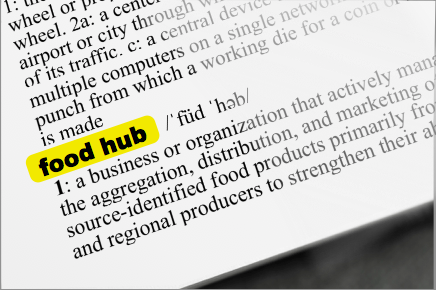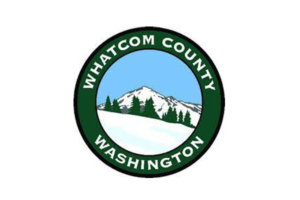There are so many “new” terms out there describing our food these days. They are on the produce racks (natural, organic, local, sustainably grown, fresh) and they are in the grocery aisles (whole grain, gluten free, no preservatives) and in the meat case! (hormone free, grass-fed, antibiotic free, farmed, fresh caught).
There are also some new old terms describing the work people do in the sustainable food system and along the food supply chain—urban farmer, local aggregator, food system consultant (us!), sustainable business advisor (also us!), local food advocate (okay, also us!), local distributor, institutional wholesaler…the list goes on.
Some of these terms are brand new and some have existed for a long time but are taking on new meanings to encompass the emerging roles many people can play in the sustainable food movement environment. At New Venture Advisors, we use a lot of these terms with our clients, with each other, and at home describing to our friends and family what it is that we do exactly—so we decided to start a Good Food Glossary to expound on some of these phrases and dive into both simple and complex terms alike, e.g. what we mean when we say “that apple is locally sourced” (wait, what’s local to me?) and also what we mean when we say “that food hub is operating at break even” (wait, do food hubs turn profits?).
We’ll develop the Good Food Glossary over the course of this year and house it on our blog so you can reference it as needed and can comment on it with your own perspectives, especially on those terms that we know are perceived differently even within the amazing good food community we are a part of.
Today, we’re going to tackle a term that we personally use daily and strikes right in the heart of what we do: THE FOOD HUB.
There are a lot of great definitions and descriptions of a food hub. Here’s the USDA’s definition:
“A regional food hub is a business or organization that actively manages the aggregation, distribution, and marketing of source-identified food products primarily from local and regional producers to strengthen their ability to satisfy wholesale, retail, and institutional demand.”
The USDA further describes the role of food hubs in regional food systems:
“Food hubs are an important subset of food value chains. Many farmers and ranchers, especially smaller and mid-sized operations, often lack the capacity to access retail, institutional, and commercial foodservice markets on their own, and consequently miss out on the fastest growing segment of the local food market. By offering a combination of aggregation, distribution, and marketing services at an affordable price, food hubs make it possible for many producers to gain entry into new larger-volume markets that boost their income and provide them with opportunities for scaling up production.”
Sustainable America also describes what a food hub can do and has an excellent graphic depiction on its website.
“Food hubs are a crucial, but often invisible, part of the local food system. They help small farms grow by offering a combination of production, distribution, and marketing services. There are now 236 food hubs in the U.S., with more popping up all the time. Some are physical spaces, some virtual online spaces, but all are concerned with connecting the dots between producers and consumers of food in local and regional food systems.”
We’re not going to reinvent the wheel when the USDA and Sustainable America have done such a fab job of laying it out, but that doesn’t mean there isn’t still some confusion about what a food hub can do…and what they DO NOT do. So here we go.
What a food hub is NOT
- A food hub is NOT the same as a commercial kitchen or as a facility with multiple food-related businesses operating within it. While some food campuses and shared-use kitchens utilize the term “Food Hub” in their name or brand, a true “local food hub” as defined above is one whose primary purpose is to connect local farmers with local buyers. A commercial kitchen, on the other hand, might serve local farmers, but more often it is a kitchen for small food businesses and emerging food entrepreneurs. While they may sometimes source local inputs, “local” isn’t necessarily the ultimate focus of many kitchen incubator clients. A local food hub may have a certified commercial kitchen as part of its business model, but this seems to be the exception and not the rule.
- A food hub is NOT the same as a broadline distributor like Sysco or US Foods that moves some local product. Why not? We say this based on the primary intention and motivation of a food hub versus a broadline distributor. A local food hub’s MAIN purpose is to help independent farmers in their region improve their sales by accessing new markets. It is possible that a local food hub evolves and expands to move non-local product over time; however, this type of strategy would only be pursued in service of the hub’s focus on farmers. On the other hand, while broadline distributors (including those that have an authentic commitment to local, independent farmers) can be very successful in moving local and be extremely important players in the local food supply chain, they are not considered food hubs because local is always a small (or at the very most, a secondary) aspect of their business.
- A food hub with no physical infrastructure is just as much a food hub as the rest of them! Red Tomato is the most famous and long standing example of this type of hub—one that has an exceptional bench of supplying farmers, a strong brand and sales strategy, and unique outsourced logistics network that enables them to aggregate and distribute orders without having any owned or operated infrastructure.
- On the other hand, some food hubs are extremely infrastructure-heavy, with a primary focus on processing and sales of value-added goods. This can include fresh cut local products, frozen (often Individual Quick Frozen) products, specialty goods or prepared meals, etc.
- A food hub does not necessarily only focus on produce. Food hubs can also focus on proteins, dairy and/or grains. As long as the entity is supporting local producers of these goods, it constitutes a local food hub!
- A food hub does not only focus on wholesale sales, but can include direct-to-consumer sales. Many food hubs nationwide aggregate product from farmers and sell them directly to consumers, often through a community supported agriculture (CSA) model.





Now I know what a food hub is! Thank you!
Glad it was helpful, Amelia. Thanks for reading!